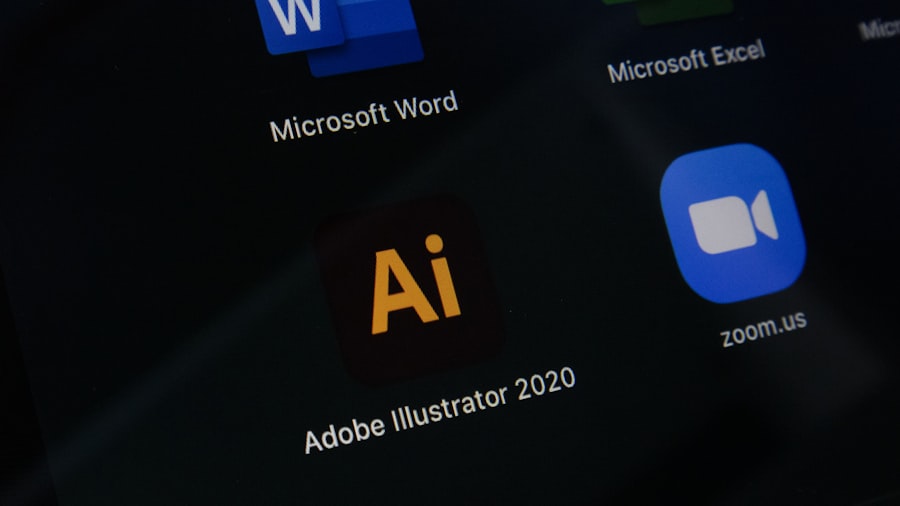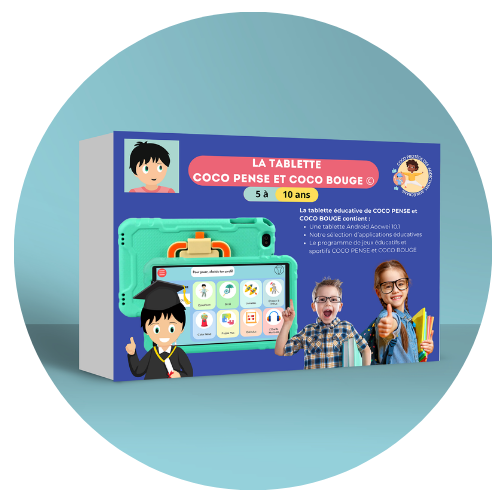Attention Deficit Hyperactivity Disorder (ADHD) is a neurodevelopmental condition that affects millions of children and often continues into adulthood. Individuals with ADHD may experience challenges in maintaining attention, controlling impulses, and regulating their activity levels. These symptoms can significantly impact various aspects of life, including academic performance, social interactions, and emotional well-being.
One area that is particularly affected is speech and cognitive development. Children with ADHD may struggle with language processing, which can lead to difficulties in expressing themselves verbally and understanding complex instructions. This can create barriers in communication, making it harder for them to engage in conversations or participate in group activities.
Moreover, the cognitive challenges associated with ADHD can hinder the development of critical thinking and problem-solving skills. These individuals may find it difficult to focus on tasks, leading to incomplete assignments or misunderstandings of instructions. As a result, their overall learning experience can be compromised, affecting their self-esteem and motivation.
The interplay between ADHD symptoms and speech and cognitive development highlights the need for targeted interventions that can support these individuals in overcoming their challenges. By understanding the unique struggles faced by those with ADHD, we can better appreciate the importance of tailored resources and tools designed to foster their growth and development.
The Role of Digital Apps in Supporting Individuals with ADHD
In recent years, digital technology has emerged as a powerful tool for supporting individuals with ADHD. With the proliferation of smartphones and tablets, a wide range of applications has been developed specifically to address the needs of those with attention difficulties. These apps offer interactive and engaging ways to enhance learning, improve focus, and develop essential skills.
By leveraging the capabilities of digital platforms, we can create personalized experiences that cater to the unique challenges faced by individuals with ADHD. This approach not only makes learning more enjoyable but also allows for greater flexibility in how and when individuals engage with educational content. Digital apps can serve as valuable supplements to traditional therapeutic interventions.
They provide opportunities for practice and reinforcement outside of structured settings, allowing users to develop their skills at their own pace. For instance, gamified learning experiences can motivate individuals to stay engaged while working on their speech and cognitive abilities. Additionally, many apps incorporate features that track progress and provide feedback, enabling users to see their improvements over time.
This data-driven approach fosters a sense of accomplishment and encourages continued effort, ultimately contributing to better outcomes for individuals with ADHD.
Speech Development Apps for Individuals with ADHD

Speech development apps are invaluable tools for enhancing language skills in individuals with ADHD. These applications are designed to address specific challenges in communication while keeping users engaged through interactive and dynamic activities.
1. Focus on Language Skill Enhancement
Speech development apps target critical areas of language, helping users improve their:
- Vocabulary: Through interactive games and quizzes, users learn new words in an engaging way.
- Sentence Structure: Exercises break down complex sentences, teaching users how to construct meaningful phrases.
- Articulation: Practice modules focus on pronunciation and clarity, ensuring effective verbal communication.
The structured yet fun approach reduces the stress often associated with traditional methods.
2. Gamification and Storytelling
Many apps use storytelling and gamified features to maintain the user’s attention:
- Interactive Narratives: Apps like COCO THINKS immerse users in character-driven stories that make learning enjoyable.
- Reward Systems: Points, badges, and level progression encourage consistent participation and celebrate achievements.
- Scenario-Based Learning: Real-life situations are simulated, allowing users to practice speech in practical contexts.
This engaging format transforms speech therapy into an exciting adventure rather than a tedious task.
3. Catering to Diverse Learning Styles
For individuals with ADHD, a tailored approach is vital. Speech development apps accommodate different preferences:
- Visual Learners: Apps incorporate vibrant images, animations, and videos to explain concepts.
- Auditory Learners: Listening exercises and spoken instructions help reinforce understanding.
- Kinesthetic Learners: Touch-based interactions and movement-oriented tasks keep hands-on users engaged.
This adaptability ensures that the app meets the unique needs of each individual, making learning more effective.
4. Building Confidence Through Progression
As users work through app-based activities, they experience tangible improvements that boost self-confidence:
- Trackable Progress: Users and caregivers can monitor performance over time, identifying strengths and areas for growth.
- Positive Reinforcement: Immediate feedback and rewards encourage persistence and foster a sense of accomplishment.
- Social Readiness: Improved speech skills empower users to participate confidently in conversations and social settings.
This journey of skill-building fosters both communication abilities and emotional resilience.
By integrating speech development apps into therapy routines, individuals with ADHD can overcome communication challenges in a supportive, engaging, and customized environment. These digital tools not only enhance speech skills but also cultivate self-assurance, paving the way for positive social and educational experiences.
Cognitive Development Apps for Individuals with ADHD
Cognitive development is another critical area where digital apps can make a significant impact for individuals with ADHD. These applications often focus on enhancing executive functioning skills such as working memory, organization, and problem-solving abilities. By providing engaging challenges that require users to think critically and strategize, cognitive development apps can help strengthen these essential skills over time.
For instance, puzzle-based games or memory challenges can encourage users to practice their cognitive abilities in a fun and interactive way. Moreover, cognitive development apps often incorporate adaptive learning technologies that tailor the difficulty level of tasks based on individual performance. This personalized approach ensures that users are consistently challenged without becoming overwhelmed or frustrated.
As they navigate through various levels of difficulty, they gain valuable experience in managing their attention and improving their focus. Ultimately, these cognitive development apps not only support skill-building but also contribute to a greater sense of autonomy and independence for individuals with ADHD.
How Digital Apps can Improve Attention and Focus in Individuals with ADHD
One of the most significant benefits of digital apps for individuals with ADHD is their potential to improve attention and focus. Many of these applications are designed specifically to capture users’ attention through engaging visuals, sounds, and interactive elements. By creating an immersive learning environment, these apps can help individuals with ADHD stay focused on tasks for longer periods.
For example, timer-based challenges or reward systems can encourage users to complete activities without succumbing to distractions. Additionally, some apps incorporate mindfulness techniques or relaxation exercises that promote self-regulation and emotional control. These features can be particularly beneficial for individuals with ADHD who may struggle with impulsivity or emotional outbursts.
By teaching users how to manage their emotions and maintain focus through mindfulness practices, these apps empower them to take charge of their attention and behavior. As a result, individuals with ADHD can experience improved academic performance and enhanced social interactions as they learn to navigate their challenges more effectively.
Tips for Choosing the Right Digital Apps for ADHD Support

When selecting digital apps for supporting individuals with ADHD, it is essential to consider several factors to ensure that the chosen applications meet their unique needs. First and foremost, we should look for apps that are specifically designed for individuals with ADHD or related conditions. These applications often incorporate features that cater to the challenges faced by this population, such as gamified learning experiences or adaptive difficulty levels.
Additionally, it is crucial to evaluate the app’s user interface; a clean and intuitive design can make it easier for users to navigate the app without becoming overwhelmed. Another important consideration is the app’s content quality and educational value. We should prioritize applications that are backed by research or developed in collaboration with professionals in the field of education or psychology.
Reading user reviews and testimonials can also provide valuable insights into how effective an app has been for others with similar needs. Finally, we should consider whether the app offers progress tracking features that allow users to monitor their improvements over time. This feedback can be motivating and help reinforce positive behaviors as individuals work towards their goals.
Integrating Digital Apps into a Comprehensive ADHD Support Plan
To maximize the benefits of digital apps for individuals with ADHD, it is essential to integrate them into a comprehensive support plan that includes various therapeutic approaches. This holistic strategy may involve collaboration between parents, educators, therapists, and healthcare professionals to create a well-rounded support system tailored to each individual’s needs. By combining digital app usage with traditional interventions such as behavioral therapy or speech therapy, we can provide a more robust framework for skill development.
Moreover, regular communication among all parties involved in the support plan is vital for ensuring consistency and effectiveness. We should encourage parents to monitor their child’s progress using digital apps while also providing feedback to educators and therapists about any observed improvements or challenges. This collaborative approach allows us to make necessary adjustments to the support plan as needed while fostering a sense of teamwork among everyone involved in the individual’s growth journey.
Success Stories: How Digital Apps have Helped Individuals with ADHD Improve Speech and Cognitive Skills
The impact of digital apps on individuals with ADHD is evident through numerous success stories shared by families and educators alike. Many parents have reported significant improvements in their children’s speech abilities after incorporating specialized speech development apps into their daily routines. For instance, one parent shared how their child went from struggling to articulate simple sentences to confidently expressing complex ideas after using an engaging storytelling app designed for speech practice.
This transformation not only enhanced the child’s communication skills but also boosted their self-esteem and willingness to participate in social interactions. Similarly, educators have observed remarkable progress in students’ cognitive skills when utilizing cognitive development apps in the classroom setting. One teacher recounted how her students became more engaged during lessons after integrating gamified learning experiences into her curriculum.
The students demonstrated improved problem-solving abilities and increased focus during activities that previously posed challenges due to their ADHD symptoms. These success stories highlight the potential of digital apps as effective tools for supporting individuals with ADHD in developing essential speech and cognitive skills while fostering a love for learning along the way.
For those interested in exploring further resources related to ADHD and cognitive development tools, an insightful article discusses the challenges and strategies around screen addiction in children, a topic closely related to managing ADHD symptoms effectively. The article, titled “C’est mon histoire: Emma nous raconte l’addiction aux écrans de son fils Nathan,” offers a personal perspective on how excessive screen time can impact children, particularly those with ADHD, and provides useful insights into balancing digital tool usage. You can read more about this important topic by visiting this link.




